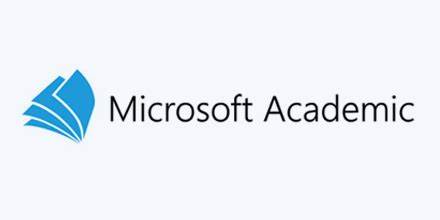Role of Management Accounting Systems in Sustainable Survival of SMEs in Pakistan: A Conceptual Framework
Role of Management Accounting Systems in Sustainable SMEs
Keywords:
SMEs, Management accounting systems, Strategic thinking, Sustainable survival, Cognitive psychologyAbstract
This conceptual paper proposes a new framework for ensuring Pakistani SMEs' sustainable survival. SME owners always strive to survive in the long run, but most SMEs cannot sustain themselves due to resource constraints. In the ensuing survival of SMEs, the role of management accounting is critical. Management accounting provides financial and non-financial information for planning, controlling and decision-making. This information can persuade SME owners to think in a strategic way which can enhance their strategic thinking. Arguably, management accounting can cognitively engage SME owners by enhancing their strategic thinking, leading SMEs to enhance sustainable survival. Based on these arguments, a conceptual framework has been proposed in which strategic thinking mediates the relationship between management accounting systems and sustainable survival. This conceptual paper has endeavored to advance the understanding of strategic thinking in management accounting scholarship. Furthermore, this paper has also provided practical guidelines for SME owners to concentrate on sustainable survival by developing management accounting systems and focusing on strategic thinking.
References
Aaltola, P. (2019). Strategic thinking and accounting: potentials and pitfalls from a managerial perspective. Journal of Management Control, 30(3), 323-351. https://doi.org/10.1007/s00187-019-00285-w
Adebisi, S. A., & Bakare, N. A. (2019). Survival strategies and sustainability of small and medium enterprises in a volatile environment. Management Dynamics in the Knowledge Economy, 7(4), 553-569. https://doi.org/10.25019/MDKE/7.4.07
Ahmad, S., Omar, R., & Quoquab, F. (2019). Corporate sustainable longevity: scale development and validation. Sage Open, 9(1), 2158244018822379. https://doi.org/10.1177/2158244018822379
Ahmad, S., Omar, R., & Quoquab, F. (2021). Family firms' sustainable longevity: the role of family involvement in business and innovation capability. Journal of Family Business Management, 11(1), 86-106. https://doi.org/10.1108/JFBM-12-2019-0081
Ahmad, S., Siddiqui, K. A., & AboAlsamh, H. M. (2020). Family SMEs' survival: the role of owner family and corporate social responsibility. Journal of Small Business and Enterprise Development. 27(2), 281-297. https://doi.org/10.1108/JSBED-12-2019-0406
Ahrens, T., & Chapman, C. S. (2006). Doing qualitative field research in management accounting: Positioning data to contribute to theory. Accounting, organizations and society, 31(8), 819-841. https://doi.org/10.1016/j.aos.2006.03.007
Akinyele, S. T., & Fasogbon, O. I. (2010). Impact of strategic planning on organizational performance and survival. Research Journal of Business Management, 4(1), 73-82. https://doi.org/10.3923/rjbm.2010.73.82
Albalushi, K. I., & Naqshbandi, M. M. (2022). Factors Affecting Success and Survival of Small and Medium Enterprises in the Middle East. Knowledge, 2(3), 525-538. https://doi.org/10.3390/knowledge2030031
Anastasi, A. (1971). Differential psychology. Individual and group differences in behavior (3rd ed.). New York, NY: Macmillan.
Andersén, J., & Samuelsson, J. (2016). Resource organization and firm performance: How entrepreneurial orientation and management accounting influence the profitability of growing and non-growing SMEs. International Journal of Entrepreneurial Behavior & Research, 22(4), 466-484. https://doi.org/10.1108/IJEBR-11-2015-0250
Azudin, A., & Mansor, N. (2018). Management accounting practices of SMEs: The impact of organizational DNA, business potential and operational technology. Asia Pacific Management Review, 23(3), 222-226. https://doi.org/10.1016/j.apmrv.2017.07.014
Baloch, N. & Rashid, A. (2022). Supply Chain Networks, Complexity, and Optimization in Developing Economies: A Systematic Literature Review and Meta-Analysis. South Asian Journal of Operations and Logistics, 1(1), 1-13. https://doi.org/10.57044/SAJOL.2022.1.1.2202
Bilal, A. R., Khan, A. A., & Akoorie, M. E. M. (2016). Constraints to growth: a cross country analysis of Chinese, Indian and Pakistani SMEs. Chinese Management Studies, 10(2), 365-386. https://doi.org/10.1108/CMS-06-2015-0127
Birnberg, J. G., Luft, J., & Shields, M. D. (2006). Psychology theory in management accounting research. Handbooks of management accounting research, 1, 113-135. https://doi.org/10.1016/S1751-3243(06)01004-2
Boyle, G. J., & Saklofske, D. H. (2004). The psychology of individual differences: Cognition, emotion and conation. Sage Publications. https://doi.org/10.4135/9781446263068
Bracci, E., Mouhcine, T., Rana, T., & Wickramasinghe, D. (2022). Risk management and management accounting control systems in public sector organizations: a systematic literature review. Public Money & Management, 42(6), 395-402. https://doi.org/10.1080/09540962.2021.1963071
Brandau, M., & Hoffjan, A. H. (2010). Exploring the involvement of management accounting in strategic decisions and control: The case of offshoring. Journal of Accounting and Organizational Change, 6(1), 72-95. https://doi.org/10.1108/18325911011025704
Caplan, E. H. (1966). Behavioral assumptions of management accounting. The Accounting Review, 41(3), 496-509.
Chand, M., & Dahiya, A. (2010). Application of management accounting techniques in Indian small and medium hospitality enterprises: An empirical study. International Journal of Entrepreneurship and Small Business, 11(1), 25-41. https://doi.org/10.1504/IJESB.2010.034430
Chenhall, R. H. & Moers, F. (2015). The role of innovation in the evolution of management accounting and its integration into management control. Accounting, Organizations and Society, 47, 1-13. https://doi.org/10.1016/j.aos.2015.10.002
Cinquini, L., & Tenucci, A. (2010). Strategic management accounting and business strategy: A loose coupling? Journal of Accounting & Organizational Change, 6, 228-259. https://doi.org/10.1108/18325911011048772
Cleary, P., Quinn, M., Rikhardsson, P., & Batt, C. (2022). Exploring the Links Between IT Tools, Management Accounting Practices and SME Performance: Perceptions of CFOs in Ireland. Accounting, Finance & Governance Review, 28. https://doi.org/10.52399/001c.35440
Dane, E., Baer, M., Pratt, M. G., & Oldham, G. R. (2011). Rational versus intuitive problem solving: How thinking "off the beaten path" can stimulate creativity. Psychology of Aesthetics, Creativity, and the Arts, 5(1), 3-12. https://doi.org/10.1037/a0017698
Das, S., Kundu, A., & Bhattacharya, A. (2020). Technology adaptation and survival of SMEs: a longitudinal study of developing countries. Technology Innovation Management Review, 10(6), 64-72. https://doi.org/10.22215/timreview/1369
Davila, A., & Foster, G. (2005). Management accounting systems adoption decisions: evidence and performance implications from early‐stage/startup companies. The Accounting Review, 80(4), 1039-1068. https://doi.org/10.2308/accr.2005.80.4.1039
Davila, A., Foster, G., & Jia, N. (2010). Building sustainable high-growth startup companies: Management systems as an accelerator. California Management Review, 52(3), 79-105. https://doi.org/10.1525/cmr.2010.52.3.79
Davila, A., Foster, G., & Oyon, D. (2009). Accounting and control, entrepreneurship and innovation: Venturing into new research opportunities. European Accounting Review, 18(2), 281-311. https://doi.org/10.1080/09638180902731455
Davis, S., & Albright, T. (2004). An investigation of the effect of balanced scorecard implementation on financial performance. Management Accounting Research, 15(2), 135-153. https://doi.org/10.1016/j.mar.2003.11.001
De Geuser, F., Mooraj, S., & Oyon, D. (2009). Does the balanced scorecard add value? Empirical evidence on its effect on performance. European Accounting Review, 18(1), 93-122. https://doi.org/10.1080/09638180802481698
Delmar, F. (2015). A response to Honig and Samuelsson (2014). Journal of Business Venturing Insights, 3, 1-4. https://doi.org/10.1016/j.jbvi.2014.11.002
Denis, J. L., Langley, A., & Rouleau, L. (2006). The power of numbers in strategizing. Strategic Organization, 4(4), 349-377. https://doi.org/10.1177/1476127006069427
Drury, C. M. (2019). Management and cost accounting. Springer.
Ershadi, M. J., & Dehdazzi, R. E. (2019). Investigating the role of strategic thinking in establishing organizational excellence model. The TQM Journal, 31(4), 620-640. https://doi.org/10.1108/TQM-05-2018-0062
Eysenck, M. W., & Keane, M. T. (2010). Cognitive psychology: A student's handbook (6th ed.). Hove: Psychology Press.
Fatima, T., & Bilal, A. R. (2019). Achieving SME performance through individual entrepreneurial orientation. Journal of Entrepreneurship in Emerging Economies. 12(3), 399-411. https://doi.org/10.1108/JEEE-03-2019-0037
Fatima, T., & Bilal, A. R. (2020). Individual Entrepreneurial Orientation, Access to Finance, and SME Performance: Fortifying Role of Entrepreneurial Alertness. Abasyn University Journal of Social Sciences, 13(1).
Ghosh, B., Herzig, C., & Mangena, M. (2019). Controlling for sustainability strategies: findings from research and directions for the future. Journal of Management Control, 30(1), 5-24. https://doi.org/10.1007/s00187-019-00279-8
Goldman, E. F., Scott, A. R., & Follman, J. M. (2015). Organizational practices to develop strategic thinking. Journal of Strategy and Management, 8(2), 155-175. https://doi.org/10.1108/JSMA-01-2015-0003
Granlund, M., & Taipaleenmäki, J. (2005). Management control and controllership in new economy firms-a life cycle perspective. Management Accounting Research, 16(1), 21-57. https://doi.org/10.1016/j.mar.2004.09.003
Greene, F. J., & Hopp, C. (2017). Are formal planners more likely to achieve new venture viability? A counterfactual model and analysis. Strategic Entrepreneurship Journal, 11(1), 36-60. https://doi.org/10.1002/sej.1245
Hall, M. (2008). The effect of comprehensive performance measurement systems on role clarity, psychological empowerment and managerial performance. Accounting, Organizations and Society, 33(2-3), 141-163. https://doi.org/10.1016/j.aos.2007.02.004
Hall, M. (2011). Do comprehensive performance measurement systems help or hinder managers' mental model development?. Management Accounting Research, 22(2), 68-83. https://doi.org/10.1016/j.mar.2010.10.002
Hall, M. (2016). Realising the richness of psychology theory in contingency-based management accounting research. Management Accounting Research, 31, 63-74. https://doi.org/10.1016/j.mar.2015.11.002
Hamadi, Z. B., & Fournès, C. (2023). Understanding the adoption or rejection of management accounting innovations within an SME using Rogers' conceptual frameworks. Journal of Accounting & Organizational Change, 19(1), 142-163. https://doi.org/10.1108/JAOC-04-2021-0054
Hameed, N. S., Salamzadeh, Y., Abdul Rahim, N. F., & Salamzadeh, A. (2022). The impact of business process reengineering on organizational performance during the coronavirus pandemic: moderating role of strategic thinking. Foresight, 24(5), 637-655. https://doi.org/10.1108/FS-02-2021-0036
Hashmi, A. R., Amirah, N. A., & Yusof, Y. (2020). Mediating effect of integrated systems on the relationship between supply chain management practices and public healthcare performance: Structural Equation Modeling. International Journal of Management and Sustainability, 9(3), 148-160. https://doi.org/10.18488/journal.11.2020.93.148.160
Hashmi, A. R., Amirah, N. A., Yusof, Y., & Zaliha, T. N. (2021). Mediation of inventory control practices in proficiency and organizational performance: State-funded hospital perspective. Uncertain Supply Chain Management, 9(1), 89-98. https://doi.org/10.5267/j.uscm.2020.11.006
Honig, B., & Samuelsson, M. (2014). Data replication and extension: A study of business planning and venture-level performance. Journal of Business Venturing Insights, 1, 18-25. https://doi.org/10.1016/j.jbvi.2014.09.006
Hopper, T., & Bui, B. (2016). Has management accounting research been critical?. Management Accounting Research, 31, 10-30. https://doi.org/10.1016/j.mar.2015.08.001
Houghton, J. D., Neck, C. P., & Manz, C. C. (2003). We think we can, we think we can, we think we can: the impact of thinking patterns and self‐efficacy on work team sustainability. Team Performance Management: An International Journal, 9(1/2), 31-41 https://doi.org/10.1108/13527590310468042
Humphreys, K. A., Gary, M. S., & Trotman, K. T. (2016). Dynamic decision making using the balanced scorecard framework. The Accounting Review, 91(5), 1441-1465. https://doi.org/10.2308/accr-51364
Hyder, S., & Lussier, R. N. (2016). Why businesses succeed or fail: a study on small businesses in Pakistan. Journal of Entrepreneurship in Emerging Economies, 8(1), 82-100 https://doi.org/10.1108/JEEE-03-2015-0020
Ingrao, C., Messineo, A., Beltramo, R., Yigitcanlar, T., & Ioppolo, G. (2018). How can life cycle thinking support sustainability of buildings? Investigating life cycle assessment applications for energy efficiency and environmental performance. Journal of Cleaner Production, 201, 556-569. https://doi.org/10.1016/j.jclepro.2018.08.080
Ismail, K., Isa, C. R., & Mia, L. (2018). Evidence on the usefulness of management accounting systems in integrated manufacturing environment. Pacific Accounting Review, 30(1), 2-19. https://doi.org/10.1108/PAR-04-2015-0010
Johnson, P. N. (2013). Mental models and cognitive change. Journal of Cognitive Psychology, 25(2), 131-138. https://doi.org/10.1080/20445911.2012.759935
Jones, N. A., Ross, H., Lynam, T., Perez, P., & Leitch, A. (2011). Mental models: an interdisciplinary synthesis of theory and methods. Ecology and Society, 16(1), 46. https://doi.org/10.5751/ES-03802-160146
Kaplan, R. S., & Norton, D. P. (1996). The balanced scorecard: Translating strategy into action. Boston: Harvard Business Press.
Kaplan, R. S., Kaplan, R. E., Norton, D. P., Davenport, T. H., & Norton, D. P. (2004). Strategy maps: Converting intangible assets into tangible outcomes. Harvard Business Press.
Kaplan, S. E., Petersen, M. J., & Samuels, J. A. (2018). Further Evidence on the Negativity Bias in Performance Evaluation: When Does the Evaluator's Perspective Matter?. Journal of Management Accounting Research, 30(1), 169-184. https://doi.org/10.2308/jmar-51698
Khan, S., Rashid, A., Rasheed, R., & Amirah, N. A. (2022a). Designing a knowledge-based system (KBS) to study consumer purchase intention: the impact of digital influencers in Pakistan. Kybernetes, Vol. ahead-of-print No. ahead-of-print. https://doi.org/10.1108/K-06-2021-0497
Krishnan, C. S. N., Ganesh, L. S., & Rajendran, C. (2022). Management accounting tools for failure prevention and risk management in the context of Indian innovative start-ups: a contingency theory approach. Journal of Indian Business Research, 14(1), 23-48. https://doi.org/10.1108/JIBR-02-2021-0060
Kuttner, M., Mayr, S., Mitter, C., & Duller, C. (2023). Impact of accounting on reorganization success: empirical evidence from bankrupt SMEs. Journal of Accounting & Organizational Change, 19(6), 24-45. https://doi.org/10.1108/JAOC-06-2021-0080
Lachmann, M., Trapp, I., & Trapp, R. (2017). Diversity and validity in positivist management accounting research-A longitudinal perspective over four decades. Management Accounting Research, 34, 42-58. https://doi.org/10.1016/j.mar.2016.07.002
Langfield, K. (2008). Strategic management accounting: how far have we come in 25 years?. Accounting, Auditing & Accountability Journal, 21, 204-228. https://doi.org/10.1108/09513570810854400
Latif, S., Izani Mohd Salleh, S., Abd. Ghani, M., & Ahmad, B. (2023). Management accounting systems and economic sustainability: a qualitative inquiry of SMEs in Pakistan. Asian Review of Accounting, Vol. ahead-of-print No. ahead-of-print. https://doi.org/10.1108/ARA-05-2022-0123
Lončar, M. (2017). The impact of strategic management and strategic thinking approaches on business performance of companies operating in the retail industry. European Project Management Journal, 7(1), 85-98.
López, L. O., & Hiebl, M. R. (2015). Management accounting in small and medium-sized enterprises: current knowledge and avenues for further research. Journal of Management Accounting Research, 27(1), 81-119. https://doi.org/10.2308/jmar-50915
Ma, L., Chen, X., Zhou, J., & Aldieri, L. (2022). Strategic management accounting in small and medium-sized enterprises in emerging countries and markets: A case study from China. Economies, 10(4), 74. https://doi.org/10.3390/economies10040074
Nandan, R. (2010). Management Accounting Needs of SMEs and the Role of Professional Accountants: A Renewed Research Agenda. Journal of Applied Management Accounting Research, 8(1), 65-78.
Näsi, J. (Ed.). (1991). Arenas of strategic thinking. Foundation of Economic Education.
Nixon, B., & Burns, J. (2012). The paradox of strategic management accounting. Management Accounting Research, 23(4), 229-244. https://doi.org/10.1016/j.mar.2012.09.004
Nyamori, R. O., Perera, M. H. B., & Lawrence, S. R. (2001). The concept of strategic change and implications for management accounting research. Journal of Accounting Literature, 20, 62-83.
Otley, D. (1994). Management control in contemporary organizations: towards a wider framework. Management Accounting Research, 5(3-4), 289-299. https://doi.org/10.1006/mare.1994.1018
Oyewo, B. M. (2021). Outcomes of interaction between organizational characteristics and management accounting practice on corporate sustainability: the global management accounting principles (GMAP) approach. Journal of Sustainable Finance & Investment, 11(4), 351-385. https://doi.org/10.1080/20430795.2020.1738141
Pedroso, E., & Gomes, C. F. (2020). The effectiveness of management accounting systems in SMEs: a multidimensional measurement approach. Journal of Applied Accounting Research, 21(3), 497-515. https://doi.org/10.1108/JAAR-05-2018-0059
Pelz, M. (2019). Can management accounting Be helpful for young and small companies? Systematic review of a paradox. International Journal of Management Reviews, 21(2), 256-274. https://doi.org/10.1111/ijmr.12197
Perren, L., & Grant, P. (2000). The evolution of management accounting routines in small businesses: a social construction perspective. Management Accounting Research, 11(4), 391-411. https://doi.org/10.1006/mare.2000.0141
Rashid, A., Rasheed, R., & Amirah, N. A., & Afthanorhan, A. (2022). Disruptive Factors and Customer Satisfaction at Chain Stores in Karachi, Pakistan. Journal of Distribution Science, 20(10), 93-103. https://doi.org/10.15722/jds.20.10.202210.93
Revellino, S., & Mouritsen, J. (2015). Accounting as an engine: The performativity of calculative practices and the dynamics of innovation. Management Accounting Research, 28, 31-49. https://doi.org/10.1016/j.mar.2015.04.005
Roetzel, P. G. (2019). Information overload in the information age: a review of the literature from business administration, business psychology, and related disciplines with a bibliometric approach and framework development. Business Research, 12(2), 479-522. https://doi.org/10.1007/s40685-018-0069-z
Roslender, R., & Hart, S. J. (2003). In search of strategic management accounting: theoretical and field study perspectives. Management Accounting Research, 14(3), 255-279. https://doi.org/10.1016/S1044-5005(03)00048-9
Sandalgaard, N., & Nielsen, C. (2018). Budget emphasis in small and medium-sized enterprises: evidence from Denmark. Journal of Applied Accounting Research, 19(3), 351-364. https://doi.org/10.1108/JAAR-08-2016-0087
Sarasvathy, S. D. (2001). Causation and effectuation: Toward a theoretical shift from economic inevitability to entrepreneurial contingency. Academy of Management Review, 26(2), 243-263. https://doi.org/10.2307/259121
Scapens, R. W., & Bromwich, M. (2010). Management accounting research: 20 years on. Management Accounting Research, 21(4), 278-284. https://doi.org/10.1016/j.mar.2010.08.003
Shah, H. A., Yasir, M., Majid, A., & Javed, A. (2019). Impact of networking capability on organizational survival of SMEs: Mediating role of strategic renewal. Pakistan Journal of Commerce and Social Sciences, 13(3), 559-580.
Shahul, N. S., Salamzadeh, Y., Abdul Rahim, N. F., & Salamzadeh, A. (2022). The impact of business process reengineering on organizational performance during the coronavirus pandemic: moderating role of strategic thinking. Foresight, 24(5), 637-655. https://doi.org/10.1108/FS-02-2021-0036
Sharma, K., & Dixit, M. R. (2017). Live long and prosper: the search for business longevity. Strategic Direction. 33(11), 1-3. https://doi.org/10.1108/SD-06-2017-0088
Shepherd, D. A., Haynie, J. M., & Patzelt, H. (2013). Project failures arising from corporate entrepreneurship: Impact of multiple project failures on employees' accumulated emotions, learning, and motivation. Journal of Product Innovation Management, 30(5), 880-895. https://doi.org/10.1111/jpim.12035
Shields, J., & Shelleman, J. M. (2016). Management accounting systems in micro-SMEs. Journal of Applied Management and Entrepreneurship, 21(1), 19. https://doi.org/10.9774/GLEAF.3709.2016.ja.00004
SMEDA (2019). State of SMEs in Pakistan. Published by small and medium enterprises development authority, Lahore Pakistan. Available at: https://smeda.org/ (accessed 21 January 2021)
Taboli, H., & Baghadam, G. (2016). Evaluation of the role of political and communication skills in social responsibility of managers by the mediating role of strategic thinking. Mediterranean Journal of Social Sciences, 7(4 S1), 323-331. https://doi.org/10.5901/mjss.2016.v7n4S1p323
Taipaleenmäki, J. (2014). Absence and variant modes of presence of management accounting in new product development-theoretical refinement and some empirical evidence. European Accounting Review, 23(2), 291-334. https://doi.org/10.1080/09638180.2013.811065
Van der Stede, W.A., Chow, C.W. & Lin, T.W. (2006). Strategy, choice of performance measures, and performance. Behavioral Research in Accounting, 18(1), 185-205. https://doi.org/10.2308/bria.2006.18.1.185
Westen, D. (2002). Psychology: Brain, behavior, & culture (3rd ed.). New York, NY: Wiley.
Wibbeke, L. M., & Lachmann, M. (2020). Psychology in management accounting and control research: an overview of the recent literature. Journal of Management Control, 31(3), 275-328. https://doi.org/10.1007/s00187-020-00302-3
Youssef, M. A. E. A., Moustafa, E. E., & Mahama, H. (2020). The mediating role of management control system characteristics in the adoption of management accounting techniques. Pacific Accounting Review, 32(4), 421-442. https://doi.org/10.1108/PAR-10-2019-0133
Zutshi, A., Mendy, J., Sharma, G. D., Thomas, A., & Sarker, T. (2021). From challenges to creativity: enhancing SMEs' resilience in the context of COVID-19. Sustainability, 13(12), 6542. https://doi.org/10.3390/su13126542
Published
How to Cite
Issue
Section
Copyright (c) 2022 South Asian Management Review (ISSN: 2958-2482)

This work is licensed under a Creative Commons Attribution 4.0 International License.
Copyright (c) 2022 SAG Publishing









